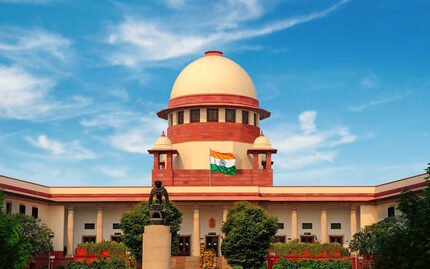Published on :
The Supreme Court on Monday reiterated that pay scale or structure of employees may vary based on educational qualification or experience even though the nature of work may be more or less the same [Union of India and Others v. Rajib Khan and Others].
A division bench of Justices MR Shah and CT Ravikumar held that such difference in pay does not violate the right to equality guaranteed by Articles 14 and 16 of the Constitution.
“Nature of work may be more or less the same but the scale of pay may vary based on academic qualification or experience which justifies classification. It is further held and observed that inequality of men in different groups excludes applicability of the principle of ‘equal pay for equal work’ to them,” the Court observed.
The Court was hearing an appeal filed by Central government challenging a decision of the Gauhati High Court which had allowed the plea of certain nursing assistants (respondents before Supreme Court), working at various hospitals under the establishment of Border Security Force.
The High Court had ruled that the nursing assistants are entitled to nursing allowance which was being given to the staff nurses at the hospital.
The High Court had observed that mere difference of educational qualification cannot be a ground for denial of nursing allowance to the present respondents since the duties performed by them were similar to the duties performed by staff nurses.
Aggrieved by the decision of the High Court, the Central government moved the apex court.
Before the Supreme Court, the government argued that since the educational qualification of the nursing assistants and the staff nurses are different, the nursing assistants cannot claim nursing allowance at par with the staff nurses.
It was further stated that the nursing assistants do not possess the relevant qualification and experience as mandated to receive nursing allowance at par with the staff nurses since they do not have any registration certificate issued by the State Nursing Council and the Indian Nursing Council unlike the staff nurses.
The appellants further contended that the classification of the different pay scales is permissible based upon educational qualifications, experience and nature of duties and therefore, the High Court materially erred in ruling in favor of the respondents.
On the other hand, the respondents argued that since the nursing assistants are an integral part of the nursing alongside staff nurses and perform similar duties, the High Court was right in observing and taking the view that the nursing assistants are also entitled to get the nursing allowance similar to the staff nurses.
The Supreme Court noted that the short question for consideration before it was whether nursing assistants be entitled to the nursing allowance at par with the staff nurses even if the educational qualifications for the post of nursing assistant and staff nurse are different.
Answering the question in negative, the Court observed that the same is already covered by its decisions in Punjab State Cooperative Milk Producers Federation Limited and Another v. Balbir Kumar Walia and others (2021), Director of Elementary Education, Odisha and Others versus Pramod Kumar Sahoo (2019) and Secretary Department of Personnel Public Grievances & Pension and Another v. TVLN Mallikarjuna Rao (2015), wherein it had upheld the different pay scales or pay structure based on different educational qualifications.
The Court noted that applying the law laid down in the aforesaid decisions, the view taken by the High Court that the educational qualification cannot be a ground for denial of Nursing Allowance to the Nursing Assistants is unsustainable.
Therefore, while setting aside the order of the High Court, the Supreme Court observed:
“The nursing assistants in the BSF neither have relevant experience for appointment as staff nurse nor they possess any educational qualification for appointment as staff nurse. Therefore, the case of nursing assistants cannot be compared with that of the staff nurses as both carry different educational qualification. Under the circumstances, the High Court has committed a serious error in holding and directing that the nursing assistants serving in the Assam Rifles/BSF are entitled to nursing allowance at par with the staff nurses.”
Therefore, the appeal was allowed.



